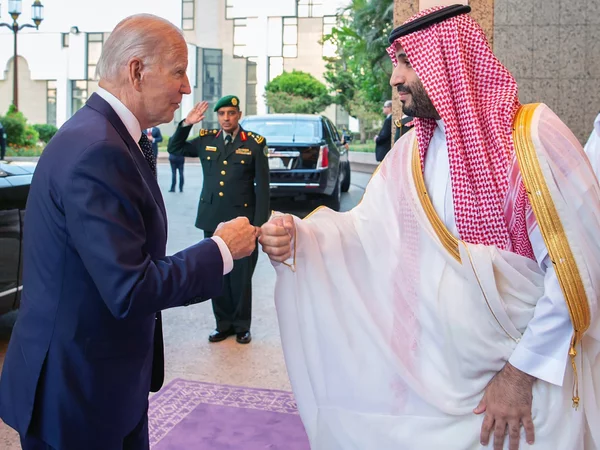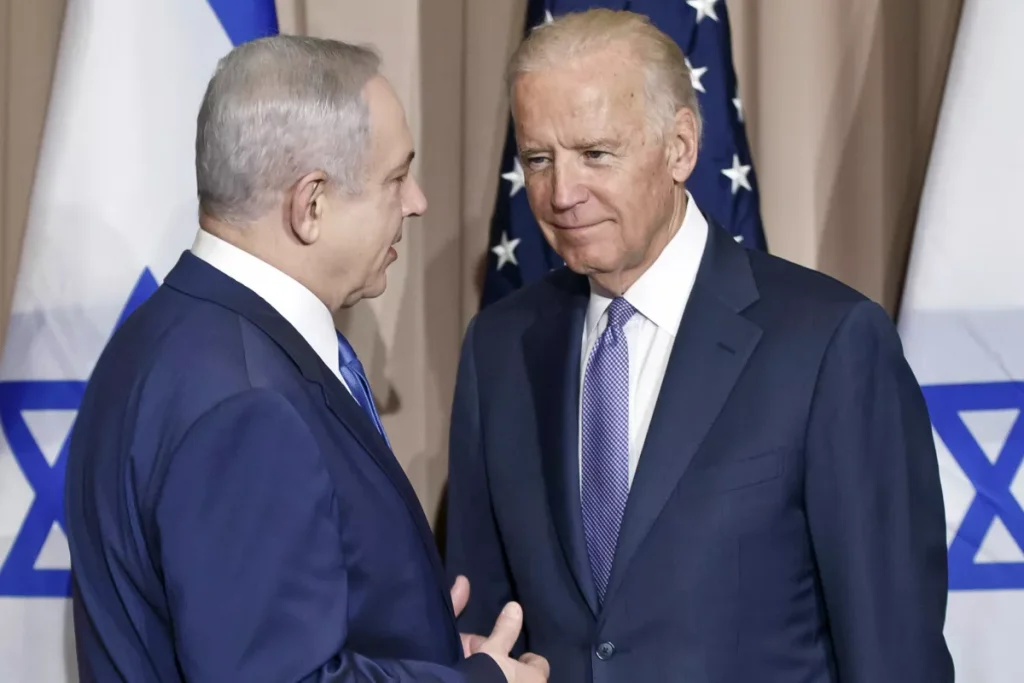U.S. Needs More Focus on its Most Important M.E. Allies—Israel and Saudi Arabia—but not at the expense of the Palestinians

By: John Mason / Arab America Contributing Writer
During a recent trip to Israel by NY Times columnist Thomas Friedman, he avers that the country exhibits “the threat to Israel’s original aspiration to be both a Jewish state and a democratic one is now so profound, posed by an extremist government trying to crush the independence of Israel’s Supreme Court.” In Saudi Arabia, he sees “the societal transformations being imposed from the top down by the iron-fisted Crown Prince Mohammed bin Salman (M.B.S.)…” as profound. Here, we assess the NYTimes report in the context of occupied Palestinians and how they might fare in an Israeli-Saudi détente.
Greater M.E. connectivity and dependency require more finesse in U.S. diplomacy
As NYTimes writer Thomas Friedman wrote about his recent trip to the Middle East, “This journey was unlike anything I’d ever experienced in a region that has long been my second home, and it allowed me to grasp something quite remarkable: how onetime enemies and rivals across the Middle East are on the cusp of becoming so much more interconnected and interdependent than ever before.”
With Saudi Arabia, Friedman sees “the societal transformations being imposed from the top down by the iron-fisted Crown Prince Mohammed bin Salman (M.B.S.) are now so profound that if you have not been to Saudi Arabia in the past five years, you may as well have not been there at all.” The re-creation of the two countries is occurring as they are purportedly holding secret peace discussions. Both nations are also figuring out how close to get diplomatically with the U.S.’s biggest rival, the Chinese.

As Friedman reports, “For all of these reasons, America needs to toss away any inhibitions and play as active a role as possible with Israel and Saudi Arabia. This is no time for America to pick up stakes from the Middle East. This is a time to lean in with our values and soft-power tools like never before.” At the same time as the U.S. needs to step up its diplomacy with both Israel and Saudi, it also means it needs to rethink its relationship with the occupied Palestinians.
In dealing with the Palestinian issue, Friedman proposes that President Biden invite Prime Minister Benjamin Netanyahu to the Oval Office. But Netanyahu must answer two questions: “One, are you occupying the West Bank and committed to resolving its permanent status through negotiations with the Palestinians, or do you see Israel’s current control of the Palestinians as the permanent status, never to be changed?”
The second question to Netanyahu concerns the Israeli court system: “Are you committed to ensuring that any major changes to Israel’s court system will be put in place with broad public support to ensure political stability because the United States has a huge interest in its most important military ally in the region not descending into civil war over judicial changes?”
As to Saudi Arabia, Friedman suggests that “Riyadh has replaced Cairo as the most important power in the Arab world, [that] we need to engage with Saudi leaders and society regularly — to ensure that Riyadh exercises power responsibly and to encourage the people and leaders in Saudi Arabia who are trying to make it more religiously moderate, more respectful of women, more tolerant of all faiths, more economically diversified and more welcoming of dissenting opinions. Saudi Arabia is also the home of Islam’s most sacred cities, Mecca and Medina, so how it modernizes and pluralizes will influence mosques and Muslim communities across the globe.”

As Biden becomes more confident in dealing with Netanyahu and M.B.S., the Israeli government is appealing to its ultra-Orthodox community, thus dividing “left from right, Jews from Palestinian Arabs, secular from religious, Ashkenazim from Sephardim.” Somewhat to the contrary, M.B.S. is catering to the country’s younger population by liberalizing many social and religious norms—women driving, a female astronaut, and another, a woman drag racer.
Biden’s total focus on Israel’s fragile democracy is a snub to the Palestinians—but M.B.S.’s stance on the Palestinians remains critical
While under the Obama administration, the two main issues at stake between the U.S. and Israel were the Palestinians and Iran. Now the Biden approach is avoiding fresh outbreaks of violence between Palestinians and Israelis. In a recent visit by Secretary of State Blinken to Tel Aviv, according to Haaretz, the focus was more on “the internal state of Israeli democracy than the possibility of a major escalation in violence between Israel and the Palestinians. Meanwhile, the lack of anything resembling a diplomatic process to try to end the nearly 56-year-old occupation doesn’t seem to bother him or the administration.”
Furthermore, Haaretz reported, Biden, “The most experienced foreign-policy president to ever sit in the Oval Office, the man who famously met every Israeli prime minister since Golda Meir, has decided not to expend any political capital on the thankless task of trying to solve the Israel-Palestine conflict. He saw how all his predecessors over the past 50 years failed and realized it simply wasn’t worth his precious time.”

Again, according to the Times’ Friedman, the Saudi position on how it wants Israel to deal with the Palestinian issue is evolving. If a peace deal is worked out between M.B.S. and Netanyahu, the Israelis will not get away scot-free on that issue. Friedman avers, “The Saudis still have not made up their minds about how much they will require Israel to do vis-à-vis the Palestinians in return for opening relations — but it won’t be zero.”
Furthermore, per Friedman, “Saudi Arabia is very competitive these days with the United Arab Emirates, and Riyadh will almost certainly want to get more from Israel than the U.A.E. got for signing the Abraham Accords. Netanyahu knows there is going to be a price, but he is trying to keep it as small as possible, diplomatic sources told me.”
Having completed his journey to the Middle East, Friedman ends on a pessimistic note, suggesting, “The Saudis could cement Netanyahu’s extremist coalition in power for years — by rewarding Bibi with the ultimate prize of diplomatic relations with Riyadh — without any Israeli concessions to the Palestinians in the West Bank. But this would likely lock Israel into an apartheid future.”
Sources:
–“From Tel Aviv to Riyadh,” New York Times, Thomas L. Friedman, Opinion, 6/6/2023
–“Snubbing the Palestinians, Biden’s Team Opts to Focus on Keeping Israel’s Fragile Democracy Alive,” Haraatz Analysis, 2/1/2023
John Mason, PhD., who focuses on Arab culture, society, and history, is the author of LEFT-HANDED IN AN ISLAMIC WORLD: An Anthropologist’s Journey into the Middle East, New Academia Publishing, 2017. He has taught at the University of Libya, Benghazi, Rennselaer Polytechnic Institute in New York, and the American University in Cairo; John served with the United Nations in Tripoli, Libya, and consulted extensively on socioeconomic and political development for USAID and the World Bank in 65 countries.
Check out our Blog here!








